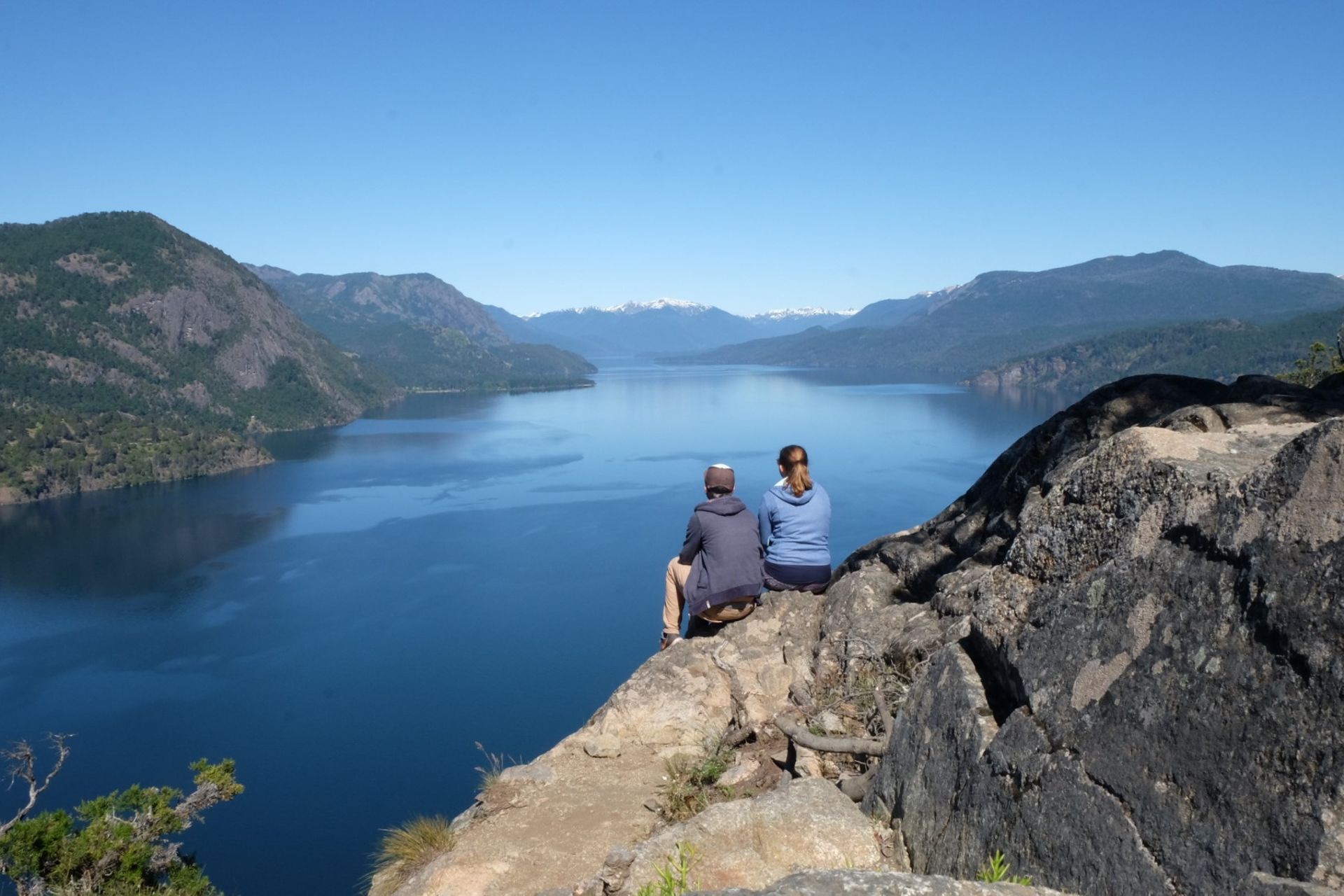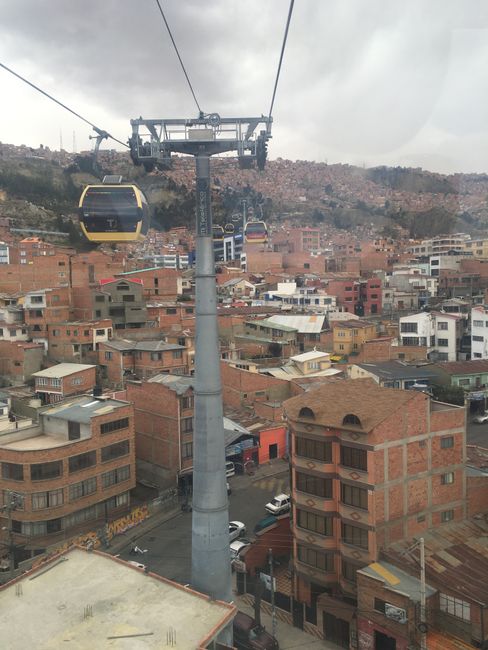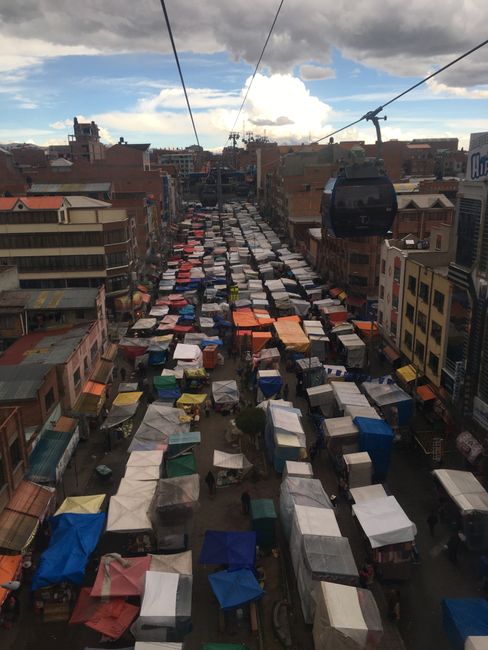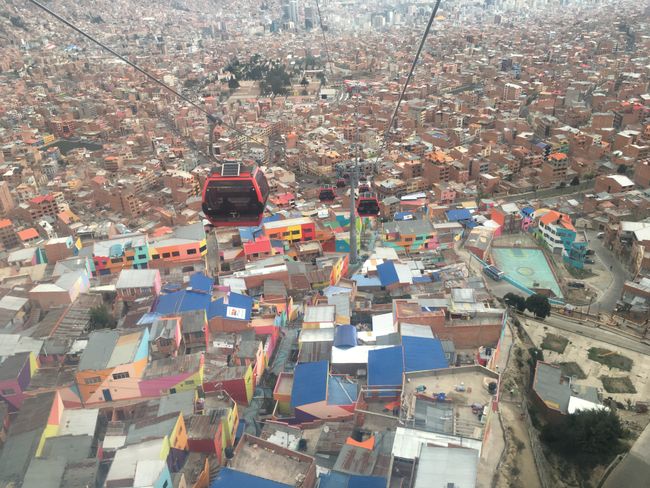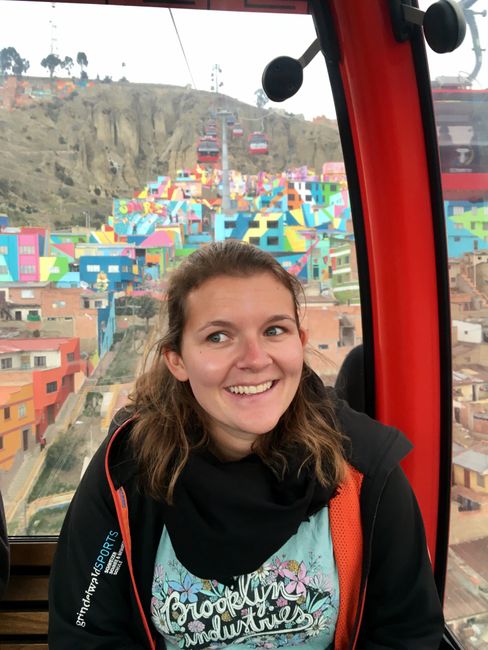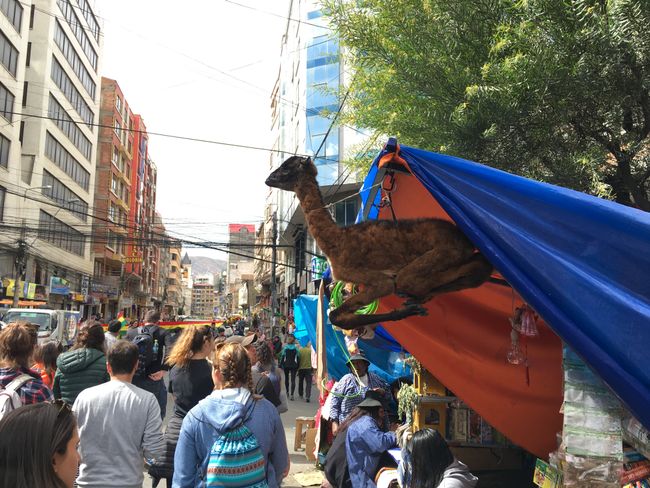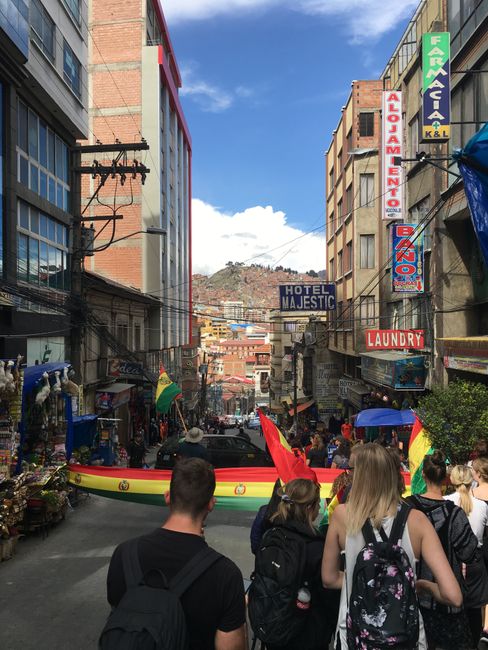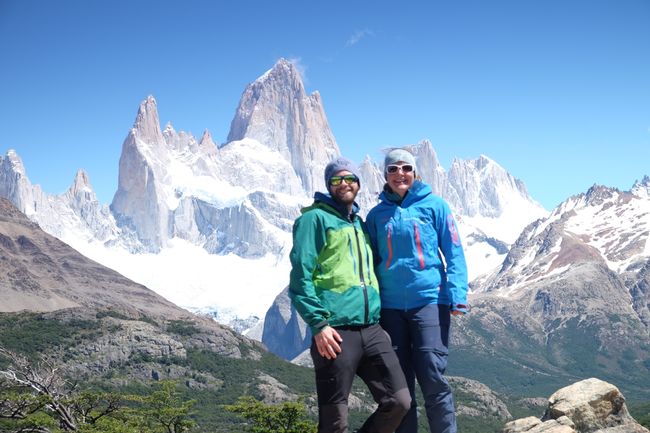
muyromantico
vakantio.de/muyromantico
Stories about La Paz
Uñt’ayata: 26.10.2019
Yatiyäw qillqatar qillqt’asipxam
Our short trip through Bolivia led us 'forcedly' through La Paz, where we spent two nights. La Paz is not the capital of Bolivia, but the political center. Therefore, our respect for this city was great, as the elections in Bolivia took place on October 20 and the population was not satisfied. The law in Bolivia stipulates that a president can govern for a maximum of two terms of 4 years. But how is it possible that the current president, Evo Morales, could run for a fourth time? Before his third election, Morales simply changed the name and statutes of the country of Bolivia so he could run again. For the fourth election, which took place last Sunday, he was able to run due to a decision by the Supreme Electoral Court. So it happened that the election results were not counted for a long time and at first it seemed that there would be a runoff. But then suddenly more votes appeared, which made a difference of more than 10%, and therefore there should be no runoff. Morales apparently won the election and this was the starting signal for many demonstrations in the city of La Paz. Fortunately, we were able to stay in the tourist area where we were safe.
During a walking tour, we learned a lot of interesting things about La Paz and Bolivian culture. There is a prison called San Pedro. If you have to go to this prison, you have to pay an entrance fee of 50 francs or more. Then there is a monthly rent. Since the prison has two layers (poor and rich), the poorer inmates pay about 50 francs per month and the richer inmates pay up to 1000 francs (for which they also receive a TV, tablets, internet, etc.). In the prison itself, it is allowed for the families of the prisoners to live there with them. So the women go to the market during the day and earn their money, and the children go to school, which is opposite the prison. In order for the prisoners to pay their wages, there are restaurants, workshops, etc. in the prison. In South America, it is legal to buy coca leaves. So the coca leaves and chemicals are carried into the prison, where they are then processed into drugs. The guards turn a blind eye with a corresponding share of the profits, and there is a huge 'Breaking Bad' cave in the middle of La Paz. Oh yeah, to get the drugs out of the prison, they pack them in bread, fruit, gifts, and throw them from the roof.
In the markets of La Paz, you can admire lots of fruits and vegetables. These are sold by the so-called 'Jolitas'. These are women in traditional clothing. The women wear long skirts, several on top of each other, and a hat. If the hat is straight on the head, the Jolita is married, and if it is on the side, she is single.
In the Witch Market, you can find many rituals of the Bolivians. They are very connected to Pachamama, the Mother Earth, for which they bring many sacrifices. For example, dried llama fetuses are sacrificed as an offering during house construction. If something bigger than a house is built, the offering must also be bigger. This still practiced ritual in La Paz shocked us a lot: The head shaman goes to dark places where homeless people have their celebrations. If someone says that it doesn't matter to them if they are not here tomorrow, they are invited home by this shaman. There he is fed with food and lots of alcohol until he can no longer stand. Once this happens, the homeless person is taken to the property where a building is supposed to be built and buried alive while intoxicated with sweets and colored objects. As an offering to Mother Earth...
Yes, there are many creepy stories about La Paz. But one great way to see the city is the cable car network. So far, La Paz has nine cable car lines, which connect the city like a subway network in the air. We were able to take a cable car tour and see the city from above. Each cable car has its own color and there are intermediate stations. A ride costs 3 Bolivianos, which is about 40 Rp.
In order to avoid the demonstrations again, we took the cable car with our backpacks to the bus station. From there we took a bus that took us to Uyuni...
Yatiyäw qillqatar qillqt’asipxam
Jaysawi
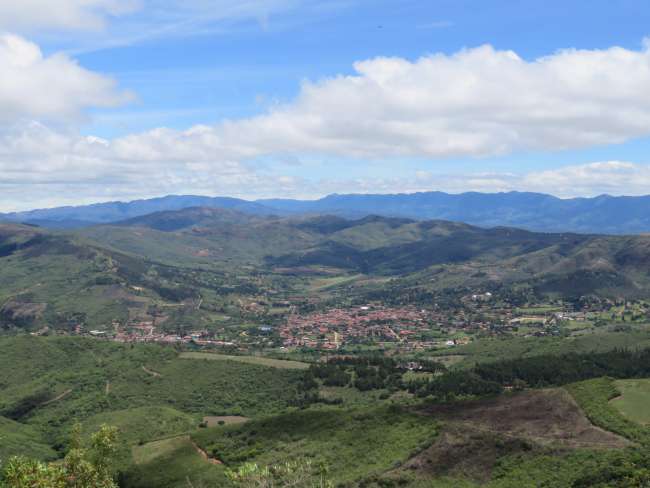
Viajes ukan yatiyawinakapa Bolivia markanxa
